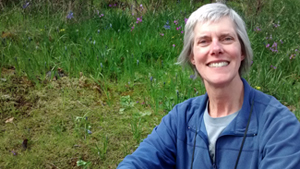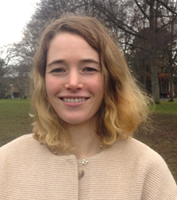Curious Investigator: Annabel Howard in Conversation with Frances Backhouse

UVic MFA candidate Annabel Howard talks with Frances Backhouse, UVic Faculty member and author of six nonfiction books, including Once They Were Hats: In Search of the Mighty Beaver and Children of the Klondike, which won the 2010 City of Victoria Butler Book Prize. The two discuss Backhouse's role as panelist for Creative Nonfiction in Canada Today: Fact, Fiction, or Scandal?, one of three interactive panel discussions at this year's literary symposium, WordsThaw. This panel will take place Saturday, March 19, 3:45 p.m. - 4:45 p.m. at the University of Victoria.
Your most recent book, Once They Were Hats: In Search of the Mighty Beaver (2015), has been very well received with, amongst others, a glowing review from the National Post. As is the case with almost all works of CNF, there is a tendency for reviews to focus on content and not form. How do you feel about this, and how think it reflects on CNF’s place in Canada’s literary landscape?
I don’t mind content-focused reviews of my books, provided the reviewer gets the facts right. However, as a reader and a writer, I prefer reviews that consider form and style alongside content. I was satisfied with the extent to which the National Post review and one that appeared a month later in the Globe and Mail did consider my book’s form and style, partly because I’ve seen plenty of reviews (including some in those publications) that neglect those elements entirely.
I think the prevalence of content-focused reviews of CNF in Canadian publications reflects an unfortunate tendency of editors to assign books on the basis of the reviewer’s knowledge of the subject matter, rather than writing credentials. I hope this will change as readers (including review-page editors) become more conversant with the genre.
I know that between your two last books Children of the Klondike (2010) and Once They Were Hats, you studied for an MFA in Creative Nonfiction at the University of Victoria. Was your decision to study externally motivated (did it have anything to do with the changing nature of CNF, your readership, or the market), or was it simply a desire to push your writing in a new direction?
The impetus was internal. I felt my writing had plateaued and I was looking for fresh inspiration. Also, I’d been circling the beaver book idea for a couple of years and failing to find the right approach, so I wanted some help on that front. I figured that, at the very least, I’d end up with a new book. I had no idea how transformative the MFA experience would be for me, both as a writer and as a person.
In Once They Were Hats, you embrace a more personal authorial voice. The reader is granted access to your quandaries as to the ethics of fur trapping, for example. Did the more personal style surprise you at all, and what do you feel it contributed to your writing?
I’ve always enjoyed reading other people’s first-person CNF, but never felt a great need to flaunt the first-person pronoun in my own work. At times, I have employed a more personal authorial voice, most notably in my 1999 Chilkoot Trail travel-memoir, Hiking With Ghosts. But I suppose I thought my experiences and opinions were generally less interesting than what I was writing about. As I worked on Once They Were Hats—and with much nudging from Lynne Van Luven and David Leach—I came to understand that to create a compelling narrative thread for this book I needed to take a central role as the curious investigator engaged in a journey of discovery. Having made that decision, I found that the story opened up for me in surprising ways, particularly in the reflective moments like the one you mentioned.
Your Wordsthaw panel will seek to question both the role of CNF in Canada today and its relationship with other literary forms: fiction, journalism, sensationalist memoir… As an author who came to the genre via journalism, could you talk about how that impacted your career? (Do you regard your books as natural progressions from long-form journalism, or something quite separate? Have you found your journalistic training to be limiting or liberating? Which skills have you found transfer most readily to your work as a full-time author?)
One of the great things journalism has given me is a view of my writing as a job and an acute awareness that if I want to keep that job and pay the bills, I have to be willing to work hard on a consistent basis and persevere even when I’m not having fun. Fortunately, it’s also given me a lot of fun and fascinating experiences along the way, otherwise I would have quit and got a “real” job years ago.
Long-form journalism has been in decline for most of my writing career and the frustration of being required to write ever-shorter features has been a major motivator for my book-writing. I’m happy to see how the Internet has been creating new markets for long-form journalism in recent years. Whether these opportunities can be financially viable for authors in the long run remains to be seen.
How do you—a writer whose work is rooted in transparent research—feel about the statement that there is 'an increasingly blurred boundary between nonfiction and fiction?' Do you even agree this is the case?
I think that blurring goes back as far as the earliest written literature, with certain works clearly standing in one camp or the other, and others scuffing up the boundary with their ambiguity. What’s different now, it seems, is the amount of attention being paid to trying to pin labels onto prose works. Perhaps this penchant for categorization comes from a desire for certainty in an increasingly uncertain world. “Reality” TV has a lot to answer for.

Annabel Howard
* * * * * * * *









